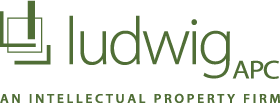Visuals are a powerful tool for content creators—but using stock photos without fully understanding licensing and intellectual property (“IP”) rights can lead to trouble. Whether you’re a blogger, marketer, web developer, or social media strategist, following best practices for sourcing images is essential. This includes knowing how to source images properly, keeping your workflow organized, and having a plan to respond if an infringement claim arises.
Should you have questions, suspect a potential infringement, or simply want to proactively avoid licensing missteps, working with an experienced IP law firm like Ludwig APC can help. We guide content creators and businesses through copyright complexities, helping them safeguard creative assets and protect their valuable brands.
Using Free Photos
Be aware: not all ‘free’ photos are truly free—unless you took them yourself. Here are some tips to help you source images while reducing the risk of copyright infringement.
Use Trusted Stock Photo Sites—Stick to reputable platforms like Unsplash, Pexels, Pixabay, and Freepik. These sites offer many royalty-free images with clear licensing terms.
Check the License Every Time—Even on free sites, some images have restrictions, such as “no commercial use,” “editorial use only,” or “attribution required.” Always read the license before downloading and using an image.
Avoid Google Image Search—Just because an image appears in search results doesn’t mean it’s free to use. On the contrary, most are copyrighted and require permission or payment.
Don’t Assume “Royalty-Free” Means Free of Charge—Royalty-free means you don’t pay ongoing fees, but you may still need to pay a one-time license fee. Again, read the licensing terms.
Use Creative Commons Carefully—Some Creative Commons licenses (CC is a nonprofit that provides free licenses for sharing and using creative works legally) allow free use, but others restrict commercial use or require attribution. Know the difference.
Ways to Track Licensing
When you’re producing frequent content, keeping track of image sources and licenses can sometimes be overwhelming. But a little structure goes a long way and can provide peace of mind should an infringement claim arise.
While several AI-powered tools are available for large-scale license management and monitoring, their relevance depends on your brand’s needs and the type of content you create. PicDefense.io’s blog on AI in image license verification explains how AI tools can be used to automate license checks, reduce copyright risk, and scale across large image libraries.
At a minimum, a simpler, in-house solution might look something like this.
Create and maintain a spreadsheet or database with:
- Image filename or thumbnail
- Source URL
- License type (commercial only, attribution required, etc.)
- Date downloaded
- Where it was used (company, platform, division, etc.)
- Additional notes on usage rights and restrictions
You might also consider downloading the license page or taking a screenshot of it to store with the image file.
If you collaborate with others, create a short internal guide, checklist, or policy to ensure everyone understands how to log image sources.
Last, but certainly not least, if you’re unsure about an image’s origin, tools like TinEye or Google Images can help you trace its source and licensing status.
If Someone Claims You’re Infringing
If you receive a copyright infringement notice, don’t panic—but don’t ignore it either.
Review the Claim Thoroughly—Check the image in question, where you sourced it, and what license you believe applied.
Remove the Image Immediately—Remove the image (and any variants) from your web site or content platform to avoid further liability.
Document Your Source—If you downloaded the image from a legitimate site, note the URL and license info. This can help prove good faith.
Don’t Respond Emotionally—Stay professional. A defensive or dismissive reply can escalate the situation.
Consult an IP Attorney—If the claim includes a demand for payment or legal action, get expert advice before responding.
Ludwig APC Can Help
Whether you’re trying to prevent issues or respond to one, a law firm like Ludwig APC, with expertise in intellectual property law, can be a powerful ally.
License Review & Guidance—We can help you understand image licenses and avoid risky usage.
Policy Creation—We can help you build internal guidelines for sourcing and using visual content safely.
Defense Against Claims—If you’re accused of infringement, we can negotiate, respond, or defend you legally.
Proactive Risk Management—We can help you audit your content and clean up any potential copyright issues before they become legal problems.
Education & Training—We can provide guidance and resources to help you and your team stay compliant and confident.
Let’s Work Together: Global Experience, Personal Focus
Stock photos are a powerful tool—but only when used responsibly. With the right sourcing habits, tracking systems, and legal support, you can focus on creating great content without fear of copyright drama. Contact Ludwig APC today at (619) 929-0873 or consultation@ludwigiplaw.com to arrange a free consultation to discuss your needs.



